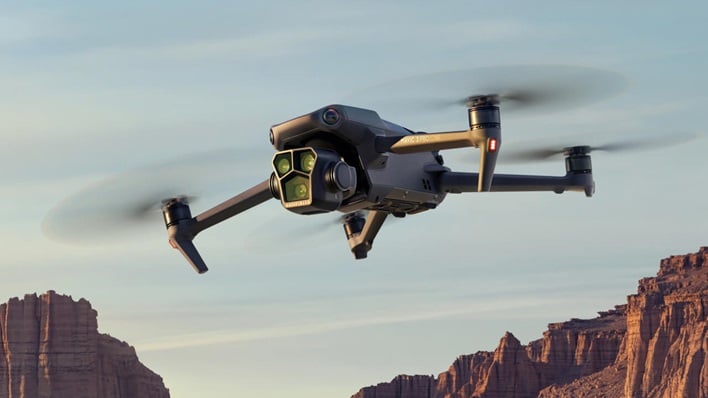
The ban of DJI drones in the US has stalled out in the Senate, at least for for now, as emergency responders came to the rescue. The Senate Armed Services Committee recently released its version of the National Defense Authorization Act (NDAA FY25), and it does not include the Countering CCP Drones Act, which aimed to ban and ground all DJI drones in the US.
Whether it be a drone made by a Chinese company, or a trained pigeon, governments around the world are always worried about how other countries can spy on them. Such is the case with DJI drones. While the incredibly popular Chinese-made drones are used in a wide variety of use cases, such as filmmaking, agriculture, and for the pure joy found in flying a quality drone, the US government has expressed concerns, with the House of Representatives including a potential ban on the drone company in its version of the NDAA FY25 it passed last month. Now, however, it seems DJI has been given a reprieve from the Senate, if only a temporary one.

The Senate’s decision to not include the ban may have been fueled by blow-back from first responders, who expressed their concern shortly after the House passed its version. Representatives from over 6,000 public safety agencies, mostly police and fire departments, wrote to the Senate Armed Services Committee in opposition to the Countering CCP Drones Act. It may have also been from everyday drone pilots as well, who tend to be very passionate about their hobby, as well as owners who use the drones for business purposes.
While the Senate’s version of the NDAA FY25 did not name DJI, it did mention drones. In its version, the Senate mentions drones in terms of: A report on military drone funding. Increased funding for drone manufacturing. Drone supply chain development. Civil authority/DOD partnerships to implement CUAS (Counter UAS).
As the NDAA moves along to the Senate floor for debate, it could be added back in as an amendment. If there are any differences between the Senate and House versions, those differences will be debated by members of the Senate and House Committees on Armed Services, which will then produce a report of its result. That report will then be sent to both the House and Senate for approval, with both chambers reconciling their versions of the bill until they reach a consensus. Only then will it be ready to be sent to the President for their signature.
So, if anyone is holding off on buying a new DJI drone because of the potential ban, don’t. The possibility of a ban will always exist, but the missed time of flying a new drone can never be recovered.